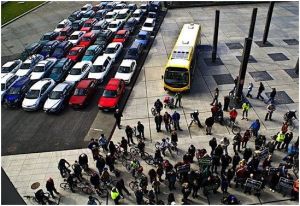
Few things are more frustrating in this needful world than to see useful ideas and hard work ending up anonymously cloistered on some distant dusty shelf, real or virtual, and not be accessible to people and groups who could put them to good work, especially at a time of crisis as that we are living through right now. This was one of the challenges we faced at World Streets from the very beginning. How to keep all these good ideas and useful tools alive and available beyond the day on which they were first published and made known to the world.


















